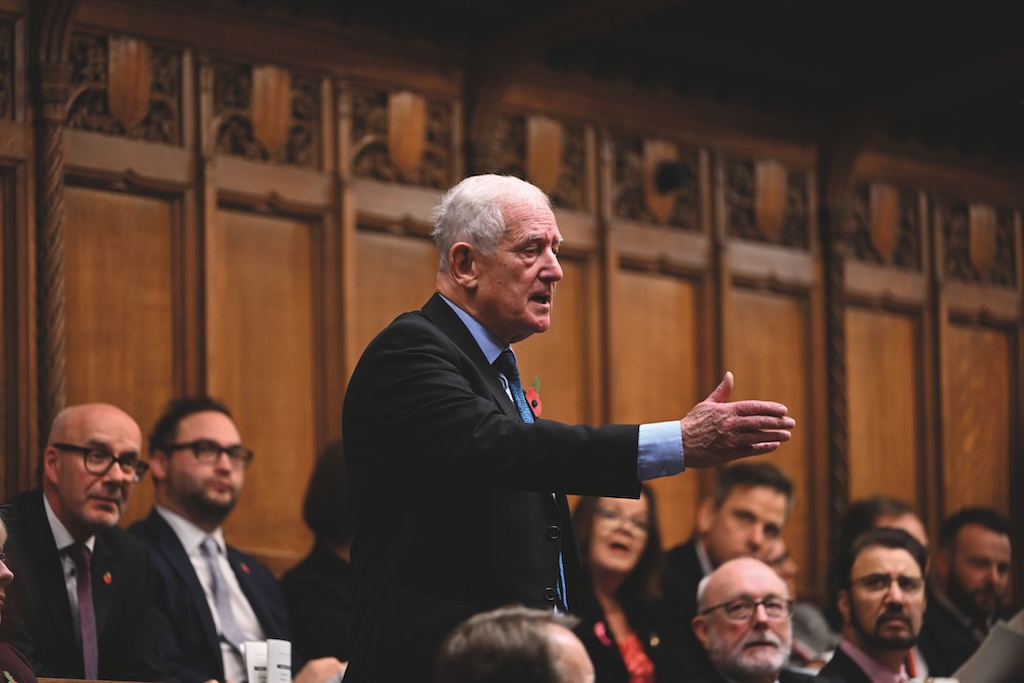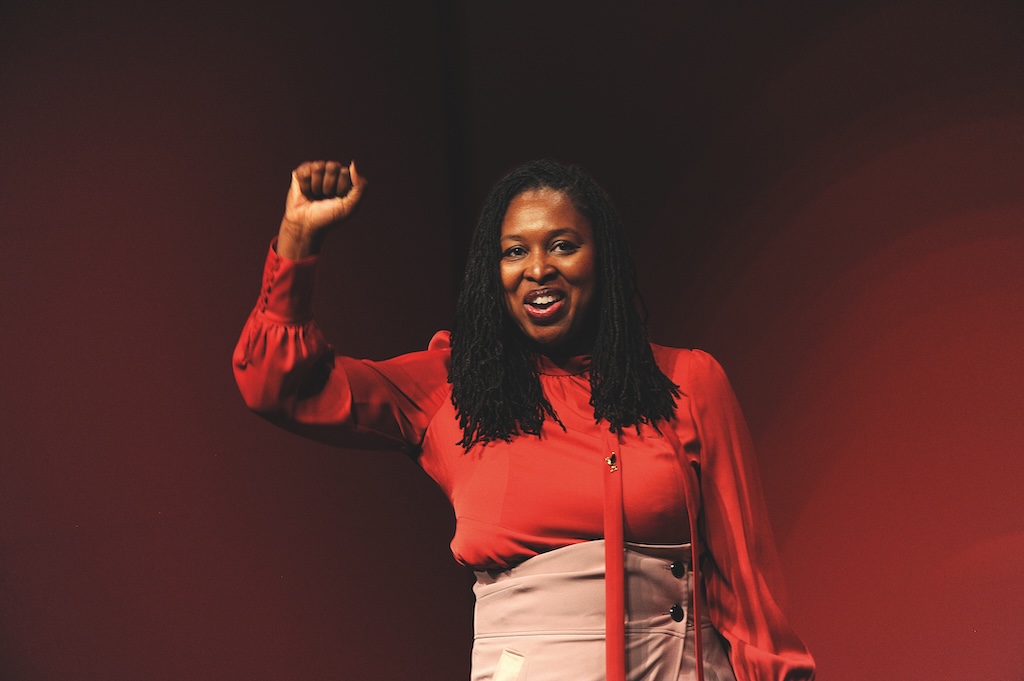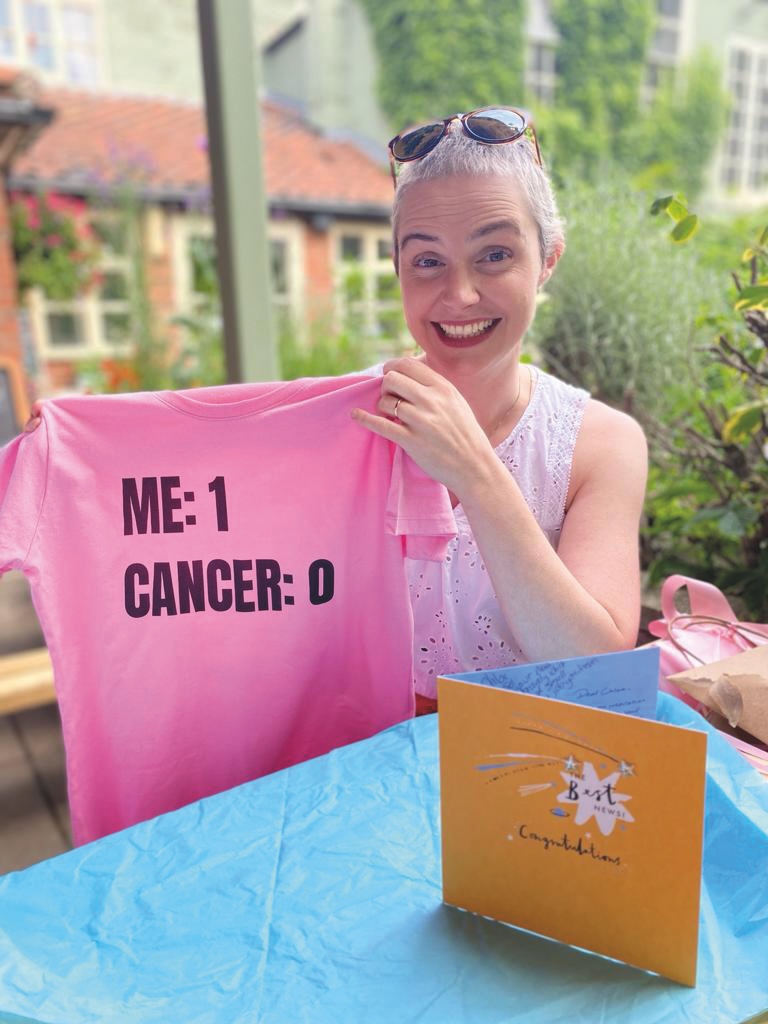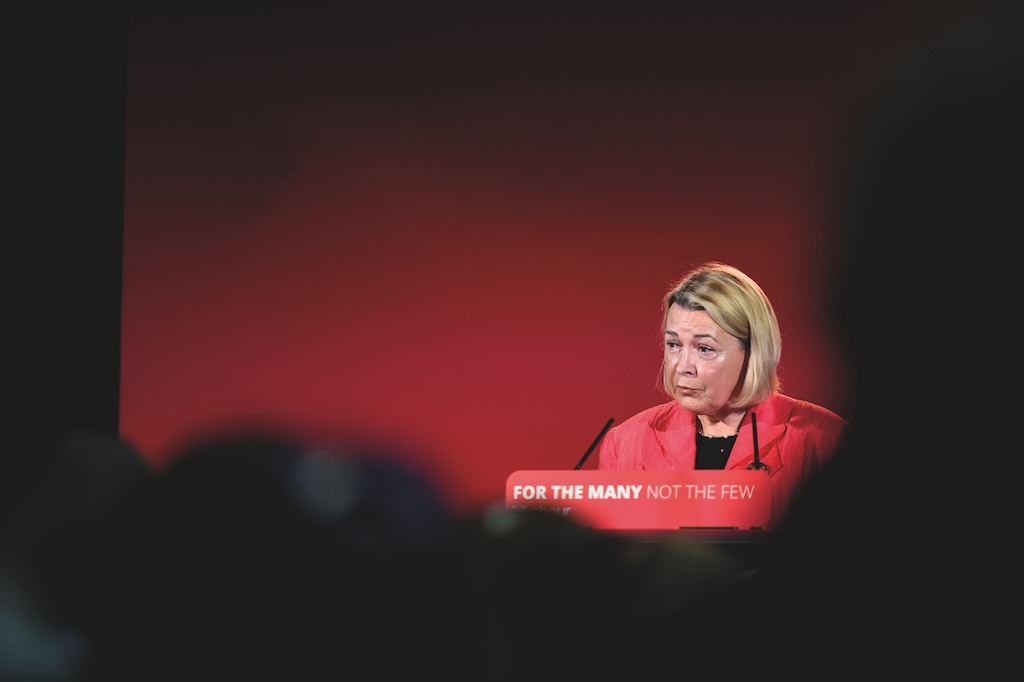MPs diagnosed with cancer: 'If you so much as cough, someone wants your seat'
Dawn Butler during the Labour leadership hustings in 2020 (Credit: PA Images / Alamy Stock Photo)
11 min read
One felt unsupported by their party; all made every effort to continue working throughout their treatment. Sienna Rodgers speaks to four MPs diagnosed with cancer while serving constituents
 Barry Sheerman (Credit: UK Parliament/Jessica Taylor)
Barry Sheerman (Credit: UK Parliament/Jessica Taylor)
Barry Sheerman nearly died ahead of the 2019 general election. He was operated on due to “very painful” kidney stones; a few days later, he was hot and shivering all over. Blue-lighted to A&E, it emerged he had contracted an infection. “I was very lucky to survive. They pumped me full of antibiotics and I came through.”
At the snap election, the Labour MP of 40 years was ready to throw in the towel. But there was concern that his red-wall seat, Huddersfield, could fall – especially if a new candidate stood. He says Labour persuaded him to run.
“I didn’t find much support from the whips on my side”
“Sort of reluctantly, I fought the election,” Sheerman, 83, tells The House. “Of course, everybody then says, ‘Barry, if you’re not well, of course we will look after you. You’ll be supported,’ and so on. When you get into Parliament, I don’t think there is much support for people who find themselves in the situation I found myself. I didn’t find much support from the whips on my side.”
After holding his seat, Sheerman fell ill again. This time, he was diagnosed with cancer – mainly kidney, but with a speck in his lungs too – and referred to Guy’s Hospital. “I was operated on robotically,” the MP says of his kidney removal.
“They took photos and showed me afterwards. Here am I, lying on the operating table next to the robot; the two surgeons are sitting the other side of the room behind the screens. They told me afterwards that not only was it much more efficient – there’s less chance of getting a hospital-borne infection. The surgery is so skilful that AI will tell them if they’ve made a mistake and correct it.”
The cancer was stabilised and Sheerman has now moved from immunotherapy to different drugs (“my wife knows what I’m on, I just take the things in my pillbox”). He still has monthly blood tests.
During this Parliament, Sheerman also had a serious death threat from a Yorkshireman who was arrested upon arrival at King’s Cross and sectioned. “To be not very well and to have a death threat, well, it wasn’t my best year,” he remarks drily. Then, late last year, he was punched hard by someone unknown outside a pub, knocking him out.
Labour has not offered the support it promised, Sheerman says. “I haven’t kept it secret. The whips knew I had cancer.”
What kind of support would have been helpful? “Consideration. I stood in 2019 because I thought they said they would look after me. I don’t know if any whips, other parties’ whips, are more thoughtful.
“When you have health concerns, you want to carry on doing the job, it would be nice sometimes if people said, ‘How are you feeling today?’, you know? ‘Don’t do that too late at night.’ There are one or two of them who’ve done that, it’s not universal, but Parliament isn’t a very caring place in many ways.”
The MP says he was “very depressed” when diagnosed. “I thought, ‘well, that’s the end’.” Yet he now raves about “wonderful treatment” and says cancer “has made me more of an optimist”. Sheerman, who has been in Parliament since 1979, will leave at the next election with a spring in his step.
 Dawn Butler (Credit: Kevin Hayes / Alamy Stock Photo)
Dawn Butler (Credit: Kevin Hayes / Alamy Stock Photo)
Dawn Butler, 54, discovered her breast cancer in December 2021 thanks to a routine mammogram. She wants people to know that, while self-checking is essential, “it may not present as a lump or leaky nipples or indented skin. It may present as nothing.”
The Labour MP for Brent Central subsequently launched a campaign, ‘A Million Missing Mammograms’, based on the estimate that – because so many appointments were missed during Covid – 8,000 people are walking around with undiagnosed breast cancer.
“If you so much as cough, someone wants your seat”
“For Black and Asian women, the outcome is a lot worse, and the cancer is normally found later than their white counterparts,” Butler points out. She says reasons for this vary from structural inequality (“Black women are not offered the same care and compassion”) to the misconception “Black people don’t get cancer”; from “a bit of shame attached to it” to “not knowing the symptoms”.
Representation is key, she says. “If you only ever see white women that don’t look like you testing themselves, saying ‘go get checked’, you won’t necessarily think it will apply to you.”
Asked about working as an MP while having cancer, Butler tells The House: “I tried for as long as possible to keep going, and I did. I didn’t want to tell anyone. Luckily, most things were being done by Zoom. Sometimes I was taking meetings in hospital, in my hospital bed.
“There’s this thing about not showing weakness as a parliamentarian. There’s also… if you so much as cough, someone wants your seat. It’s a really weird thing, which we don’t talk about.” She laughs darkly.
After her operation, Butler spent three days in intensive care. She came out but was rushed back to hospital after developing a bad infection. That is when she realised her body demanded rest: “I needed to stop.”
Butler found the whips supportive but parliamentary structures less so. She says select committee members have their attendance rates published every year – and unless they have an official proxy, they’re marked as absent.
“That is unfair if you’re sick. The proxy process is better than it was, but it really isn’t great. All of that needs changing,” Butler says. “When the newspapers look at it, they just do a league table. It doesn’t matter that you almost died. Nobody knows about that.”
Butler’s treatment took place later than that of the other MPs interviewed by The House and she expresses real anger about the NHS. When there was nobody available to take her blood in hospital, she asked the staff: “How are you coping?”
“They were fighting back the tears. I realised they weren’t coping. They were struggling to keep afloat. It was a mixture of PTSD from Covid and the fact they were just so overworked,” she says. “I was very angry with the government, what they’ve done to the NHS. Very angry.”
 Chloe Smith
Chloe Smith
Chloe Smith was taking a shower when she felt something different to what she’d felt the day before: a lump in her breast. Despite this being in October 2020, during Covid, she got a GP appointment that same day; an examination and referrals swiftly followed.
“I overworked myself. I actually ended up at A&E at three in the morning”
The Conservative MP for Norwich North, 41, was a minister in the Cabinet Office at the time, tasked with difficult policy questions such as whether local elections delayed due to the pandemic in 2020 could be held in 2021.
“I overworked myself. I actually ended up at A&E at three in the morning, after a week of having produced a particular paper on that issue, because I’d got an infection along the way. As you know, with cancer treatment, you have to be extremely careful with infections. And there I was, with neutropenic sepsis.”
Yet Smith worked throughout her cancer care and maintains that was important for her. “I guess it was a sense of normality. That was my identity. That was my normal course of things. The year had been weird enough already, what with the pandemic.”
The MP suggests experiencing cancer had a positive impact on her work. “In quite a profound way, I think it gave me a much deeper perspective on my work as a constituency MP,” she says. “You’ve got to have empathy, and you’ve got to walk in others’ shoes. There was no doubt that a serious health episode for me was teaching me a lot.”
Since her own diagnosis, Smith has lost friends and family to cancer. She highlights one in particular: colleague James Brokenshire, the MP who died in 2021, aged 53, from lung cancer.
“I was affected very heavily by James’ death,” she says. “Partly the sheer tragedy of losing him so young and at the prime of what he was doing, and my concern for his family, but when you combine that with your own recent experience, that does become very real.”
In her treatment, Smith had what she describes as the “full whack”: seven rounds of chemotherapy; a mastectomy and reconstruction; radiotherapy; a secondary kind of chemotherapy; finally, an ongoing prescription of drugs for five years.
After all that, it is little surprise that she is stepping down as an MP at the next election. Now a trustee of the Big C Cancer Charity, she will leave with a strong interest in health and a new passion for the life sciences.
Her appearance has also changed, Smith points out, having lost her hair during treatment. It is a running joke among MPs that their first ever election poster looks very different to their final poster. “In my case, it really does,” she laughs.
“For me, the overall experience has also been an opportunity to reflect on what I’m trying to achieve in my life, whether I’ve got the balance right. Have I spent enough time cuddling my kids? Some of that is a contributory factor to my decision to leave Parliament this year, at this election.
“I know very clearly where my passions lie, and I’m absolutely confident that I’ve got continued contributions to make, but I also know that I would like to make those in slightly different ways.”
 Barbara Keeley (Credit: Benjamin Wareing / Alamy Live News)
Barbara Keeley (Credit: Benjamin Wareing / Alamy Live News)
Barbara Keeley considers herself very lucky. Firstly, because when she was diagnosed with breast cancer in April 2019 there were not the long waiting times cancer patients are facing now. After finding a lump, she found herself having surgery just four weeks later; then in July came radiotherapy, which she did daily for three weeks.
But the Labour MP for Worsley and Eccles South, 71, is also lucky, she says, because parliamentary recess fell at the right time to allow her to take a week off. “I was fortunate in the dates with things, really. I then did have the recess to get over the surgery and the radiotherapy.”
“Pain does make you a bit tired, yes. I don’t know. It seemed to me better to work through it”
The rest of the time, she didn’t stop working. “I just carried on. I had a week off when I had the surgery, maybe a week and a half, because it was a holiday anyway. The rest of the time I just worked through it,” she says.
The staff at Guy’s Hospital helped to fit appointments around her working day in Parliament. “Between the radiotherapists and the whips, I did manage to keep working.” Was she not in pain at work? “Yes, there is pain you have to deal with. Pain does make you a bit tired, yes. I don’t know. It seemed to me better to work through it.”
The December 2019 election campaign was particularly tough, she admits. “It was physically hard because it was so cold. And I’ve got a northern constituency. I did get a lot of support from my staff, a lot of support from my husband, to manage through that period. You absolutely rely on that.”
She did not tell her party or constituents about the cancer until she had completed treatment; only her direct staff and family knew.
Did it shape her view of the NHS? Keeley was already interested in health, being a shadow health minister at the time and a long-standing Health Select Committee member. But it brought home the distance problem encountered by many during treatment.
“If you lived in certain parts of the country, you wouldn’t have a Guy’s Hospital with the radiotherapy, the cancer centre, that they’ve got,” she says. “The logistics for some people of getting from where they live in the country to a major cancer hospital, you just start to understand that and why it’s of concern.”
Keeley was truly shocked by her diagnosis. “No one else in my family had had cancer, no one else in my family had had breast cancer. I just didn’t – I suppose I didn’t believe I would get it,” she says. “You get fixed in your head that this sort of thing does tend to run in families, and it hadn’t run in ours. But there’s always a first one, isn’t there?”
She went public with her experience to help raise awareness about self-checking. “It’s easy when you’re busy just to leave things and think, ‘I’ll do it next week, or I’ll follow it up when I’ve got time’. But really, you must do it.”
